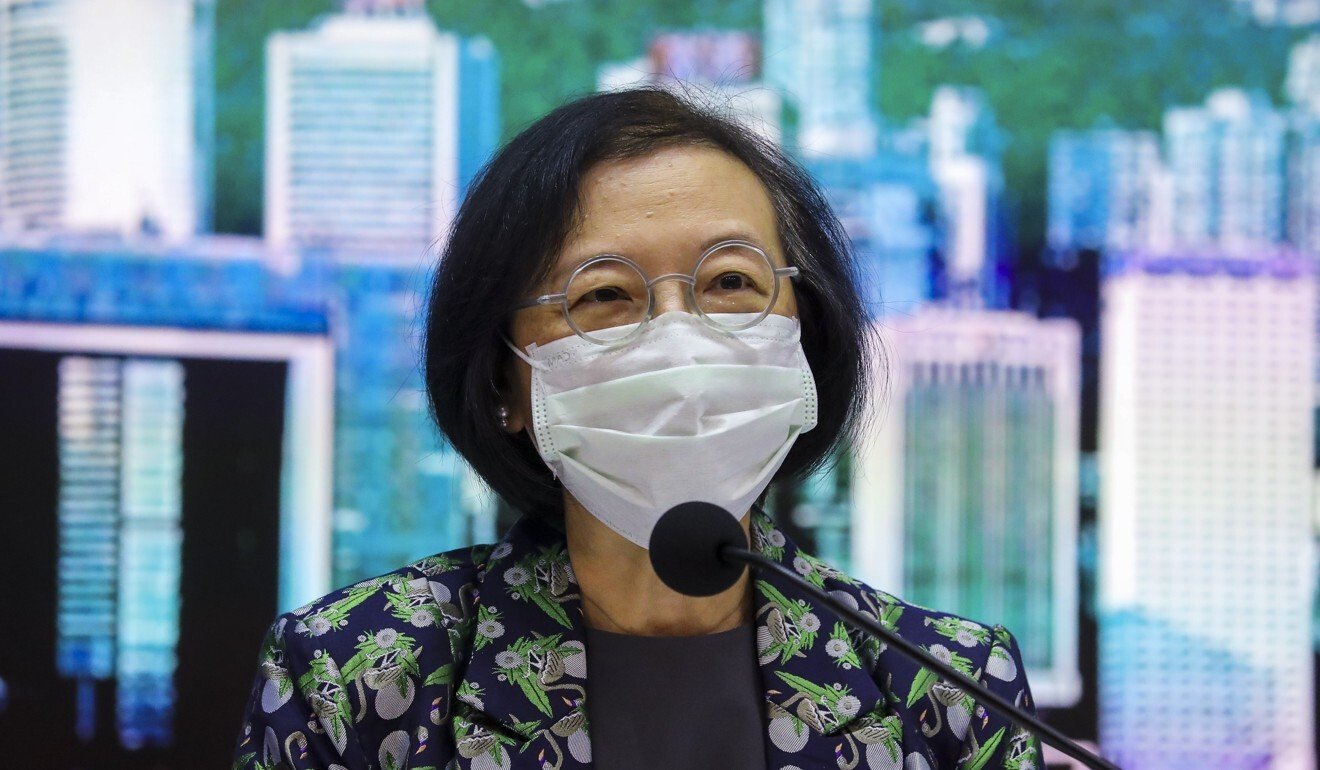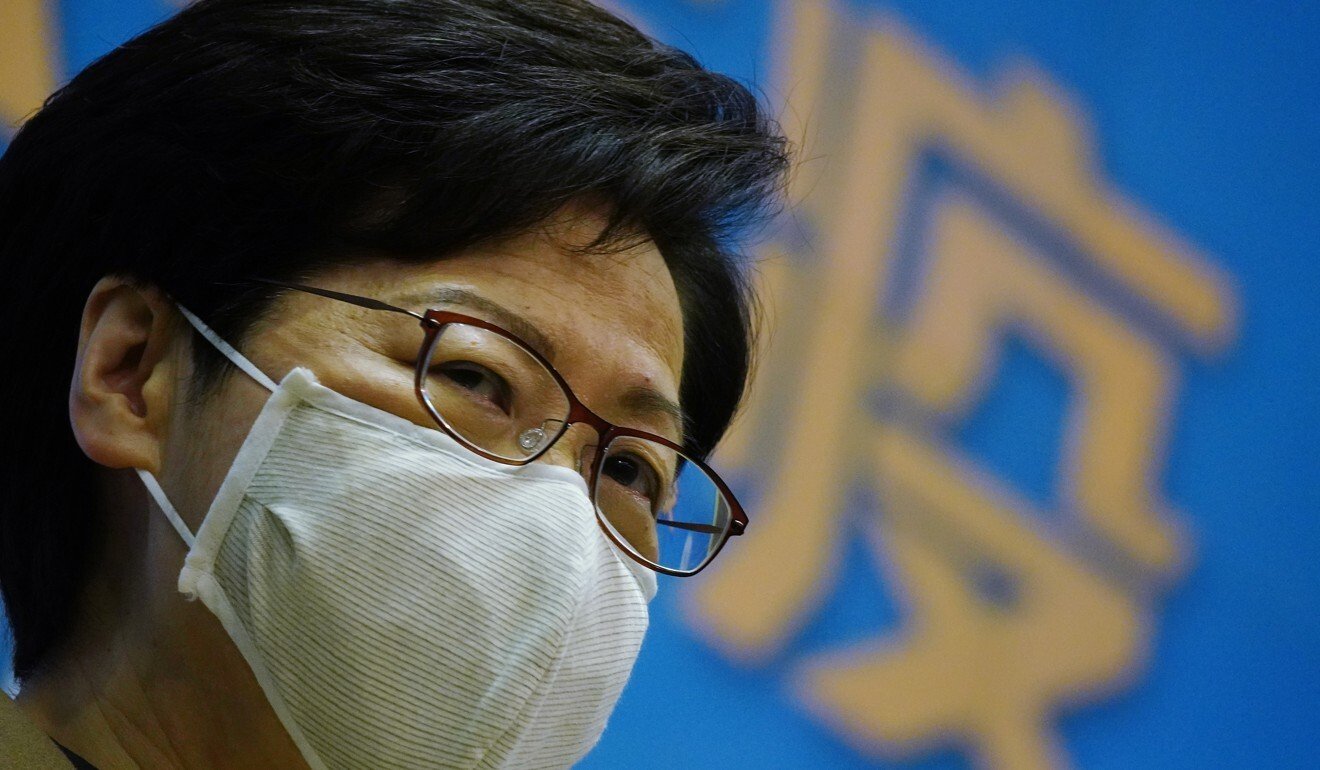Hong Kong News

Hong Kong lawmaker floats idea of HK$5,000 pay-off for taking Covid-19 shot
Hong Kong lawmakers have suggested providing a cash incentive of up to HK$5,000 (US$645) to encourage residents to get vaccinated against the coronavirus when the first million shots become available early next year.
Chief Executive Carrie Lam Cheng Yuet-ngor last Friday announced that a deal had been reached to secure 15 million shots of Covid-19 vaccines manufactured on the mainland and in Europe, but faced tough questions as to whether residents would be open to jabs manufactured and distributed by Chinese companies.
On Wednesday, Secretary for Food and Health Sophia Chan Siu-chee continued to face questions from lawmakers on the Legislative Council health services panel about how the government would encourage residents to get vaccinated.

“You have already been criticised by residents when you said infected people would be given a subsidy, so will there be a cash reward for getting the shots?” Leung Che-cheung of the pro-establishment Democratic Alliance for the Betterment and Progress of Hong Kong (DAB) asked Chan.
“If there is nothing to motivate residents to be vaccinated, it will be the end of Hong Kong. So if HK$3,000 is not enough, then give them HK$5,000,” he said.
Insurance industry lawmaker Chan Kin-por also said he had heard from constituents asking if they would be given cash for taking the Covid-19 shot.
In response, health minister Chan said the government would launch a large-scale campaign to educate residents about the benefits of the vaccine. “As for the lawmakers’ suggestions, we would certainly consider it if circumstances allow,” she added.
The vaccinations immediately became a political hot potato after it was announced the first million shots arriving next month would be from by mainland supplier Sinovac Biotech. Another million co-developed by Germany’s BioNTech and US-based Pfizer were to arrive no later than the first quarter of 2021, secured via mainland firm Fosun Pharma.
A third company, AstraZeneca, would also deliver 7.5 million shots to the city by the second half of next year at the earliest under a still-pending deal.
As of Tuesday, Hong Kong had recorded more than 7,700 Covid-19 cases with 123 related deaths.
Pressed as to whether Hongkongers would be enthusiastic about accepting a vaccine supplied by a mainland firm, Lam had urged residents to be apolitical and trust the scientific assessments of her advisory team.
Two of the administration’s health advisers, Professors David Hui Shu-cheong and Gabriel Leung, also said the government had made the right call based on scientific and commercial factors, but a government insider told the Post that Sinovac Biotech had been chosen to placate certain parts of the pro - establishment camp.
Meanwhile, opposition lawmaker Cheng Chung-tai of Civic Passion asked Sophia Chan if government officials and ministers would consider getting the shots first to convince residents of the safety.
“You will have to monitor the effects for two months, and if all of you make it past Lunar New Year, then it’s OK, and residents can decide if they want to get the vaccine,” he said.
Chan said the chief executive and other ministers would be receiving jabs and would be transparent about any side effects to allow residents to make an informed choice.
She also said the government would consider setting up community vaccination centres to facilitate the distribution process for one of the shots requiring special storage systems. The vaccines developed by Pfizer require storage at minus 70 degrees Celsius.

Dr Arisina Ma Chung-yee, president of the Public Doctors Association, told a radio show on Wednesday that she and other medical workers would only decide whether to receive the vaccinations after assessing the risks, as the timeline and vaccination procedures were still unclear.
She said while the jabs would protect high-risk groups, they could also cause such side effects as allergies in the nervous system.
Lawmakers including DAB’s Alice Mak Mei-kuen and Starry Lee Wai-king, also asked if the government would consider running a second mass-testing programme, but the suggestion was shot down by both Chan and health adviser Hui.
Mass testing would only work if it was carried out quickly and in conjunction with a citywide lockdown which would take weeks and would likely be unacceptable to businesses and residents, they said.
Chan added that the last mass-testing drive had only uncovered a very small number of positive cases, lending weight to the current strategy of targeted testing.











